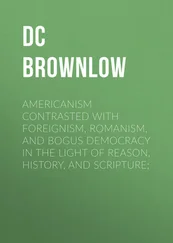Ford took the Chicago Tribune to court, seeking one million dollars in damages. The trial began in the summer of 1919 and took fourteen weeks to present each side. It was during this trial that the ignorance and weak character of Henry Ford became evident. One observer, author John Tebbel, reflected on Ford’s testimony: ‘He was virtually illiterate, obviously, and his philosophy was unashamedly out of the cracker barrel.’ This was a very telling insult to Ford’s intelligence. The use of the term ‘cracker barrel’ refers to the old barrels of crackers that would be in the local country stores during the late nineteenth century. The stereotype is that the plain and simple country folk would gather there to talk, much like the ‘water cooler’ is used as a reference today. Cracker barrel philosophy was thought to be the inane ramblings of ignorant rural citizens.
The primary lawyer for the Tribune , Elliott K. Stevenson, began to ask Ford a number of questions on American history, in order to establish his level of ignorance and validating the newspaper’s position on his intelligence. Among the absurdities, Henry Ford was found to believe that the Revolutionary War occurred in 1812, and thought that notorious traitor Benedict Arnold was a writer. It has been said that copies of Ford’s testimony were printed and sold near the courthouse, inspiring an immense amount of laughter and mockery from the public. The entire experience served only to show a wilful ignorance in Ford. Ford refused to read in front of the jury, making excuses about forgetting his glasses and that his eyes watering; when asked if he wanted to leave the jury with the impression that he was illiterate, Ford is said to have replied: ‘Yes, you can leave it that way.’ Throughout the eight days of questioning, Henry Ford would often lose interest and wander around the courtroom, looking out the windows and fidgeting. He was clearly out of his league in the proceedings.
The jury, which consisted primarily of farmers, did find for Henry Ford in the end. They awarded him the amount of six whole cents after a ten-hour deliberation.
Henry Ford and The Dearborn Independent are Sued
In 1927, Jewish lawyer and farm cooperative organiser Aaron Sapiro brought a lawsuit against Henry Ford accusing him of defamation for his many years of clearly anti-Semitic articles in The Dearborn Independent . This was the third lawsuit of this kind that had been raised against the newspaper, but the only one that would end up going to trial. Ford would not testify at the trial, but instead faked a car accident and hid out in the hospital to avoid it. Ford would then issue a less than sincere apology and shut down The Dearborn Independent for good. The final issue was published on 31 December 1927.
Ford wrote a statement of apology to be released on 30 June 1927, regarding ‘ Charges Against Jews Made in His Publications, The Dearborn Independent and a Series of Pamphlets Entitled The ‘International Jew’ . In this apology letter he defers responsibility of the newspaper’s anti-Jew articles to his underlings and basically denies the reality that he was the mastermind behind the racist newspaper:
For some time past I have given consideration to the series of articles concerning Jews which since 1920 have appeared in The Dearborn Independent. Some of them have been reprinted in pamphlet form under the title ‘The International Jew’. Although both publications are my property, it goes without saying that in the multitude of my activities it has been impossible for me to devote personal attention to their management or to keep informed as to their contents. It has therefore inevitably followed that the conduct and policies of these publications had to be delegated to men whom I placed in charge of them and upon whom I relied implicitly.
In an even more nervy move, Ford goes on to paint himself in a sympathetic manner towards Jews, while subsequently claiming that he had no idea that his newspaper was publishing his own editorials and collecting them in book format for distribution at his own dealerships and worldwide readership:
To my great regret I have learned that Jews generally, and particularly those of this country, not only resent these publications as promoting anti-Semitism, but regard me as their enemy. Trusted friends with whom I have conferred recently have assured me in all sincerity that in their opinion the character of the charges and insinuations made against the Jews, both individually and collectively, contained in many of the articles which have been circulated periodically in The Dearborn Independent and have been reprinted in the pamphlets mentioned, justifies the righteous indignation entertained by Jews everywhere toward me because of the mental anguish occasioned by the unprovoked reflections made upon them.
Henry Ford ordered the remaining copies of his horrible anti-Semitic book to be burned and the production of future copies ceased. The sad reality is that by then, Ford had already used his considerable authority and influence as a cultural icon to legitimise his racist ideals. A lot of Jewish organisations at the time accepted Ford’s apology as sincere, especially since he shut the paper down, but it would later be revealed in the accounts of those that knew him that Henry Ford still firmly held his views behind closed doors, as evidenced by his ongoing involvement financially and publicly with the Nazi Party.
Henry Ford, Hitler and the Nazi Party
Henry Ford had conquered the automobile marketplace in America, with the majority of all car sales split between the ‘Big Three’: Ford, GM and Chrysler by the late 1920s. The American marketplace was an important mountain to climb, but once that was dominated, it was time for the ‘big three’ to set their sights elsewhere in the world; one such place was Germany. Ford had begun to have a German presence in 1912, when they began manufacturing parts in Hamburg. Ford soon began manufacturing in Berlin and on 1 April 1926, the very first German built Model T was assembled. Ford moved its manufacturing facilities to Cologne in 1931, and built a facility right on the banks of the Rhine, providing waterway access between it and other Ford facilities such as Manchester and Dagenham in Britain.
Meanwhile, a young Adolf Hitler was spending hours in his rented room, reading book after book, developing his thoughts on the world and society. One of the things he read was the work of one of the most wealthy and recognisable celebrities in America – Henry Ford. Hitler had access to the four volumes of The International Jew and he held Ford’s work in high esteem.
Hitler published his own manifesto on 18 July 1925, the now notorious book Mein Kampf , which translates as My Struggle . The 720 page book was dictated by Hitler while he was behind bars, serving time for his treasonous but failed coup attempt called the Munich Putsch. Hitler and his Nazi Party tried to seize power in Germany by force, a goal that they would later achieve more through political manipulation. Hitler’s jail time wasn’t spent the way one might imagine; as leader of the National Socialist Party, he was already something of a people’s folk hero in Germany. He received excellent treatment, had comfortable accommodation and enjoyed many visitors during his time in prison.
Mein Kampf would include plans for Germany’s future, observations on culture and, most importantly, groundwork for an anti-Semitic platform that would define the rest of Hitler’s life. There are early suggestions of genocide as an option for dealing with the Jewish people, whom he felt to be inferior. Mein Kampf is an important time stamp in the life of Henry Ford, because he is the one and only American mentioned by name in the hate text. Hitler mentions The Dearborn Independent newspaper articles on the Jewish conspiracy by name and heralds Ford as: ‘one great man, Ford, to their exasperation still holds out independently there even now’, referring to Ford’s resistance of his perceived Jewish control over the American economy and manufacturing. This mention is a powerful insight not only into how vicious and dangerous the anti-Semitic rhetoric propagated by Henry Ford was, but also how far reaching it was. It cannot be underplayed that Henry Ford’s anti-Semitism inspired Adolf Hitler himself; what a powerful and destructive legacy to leave in one’s wake.
Читать дальше












